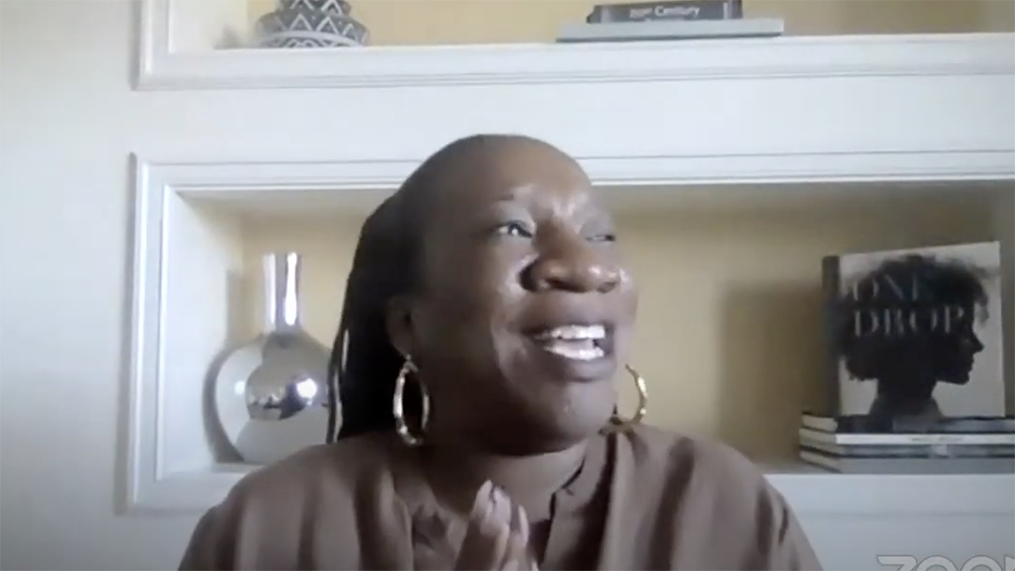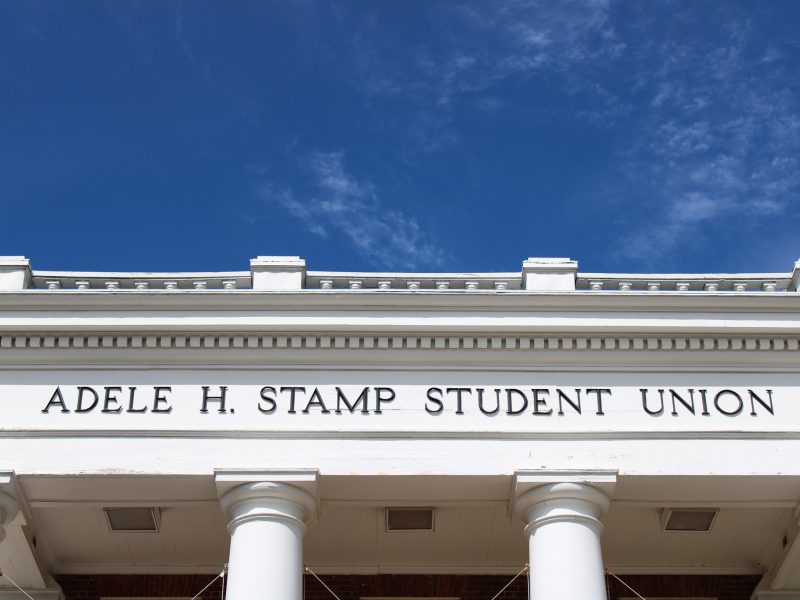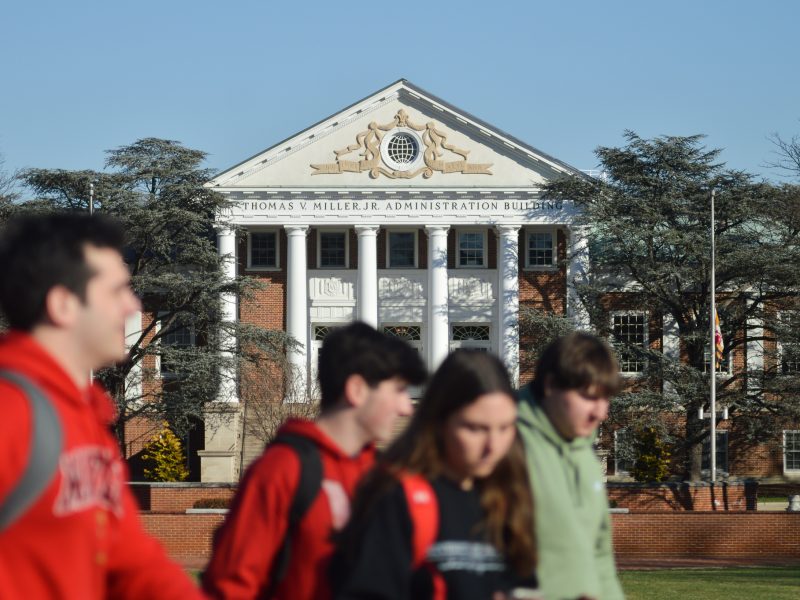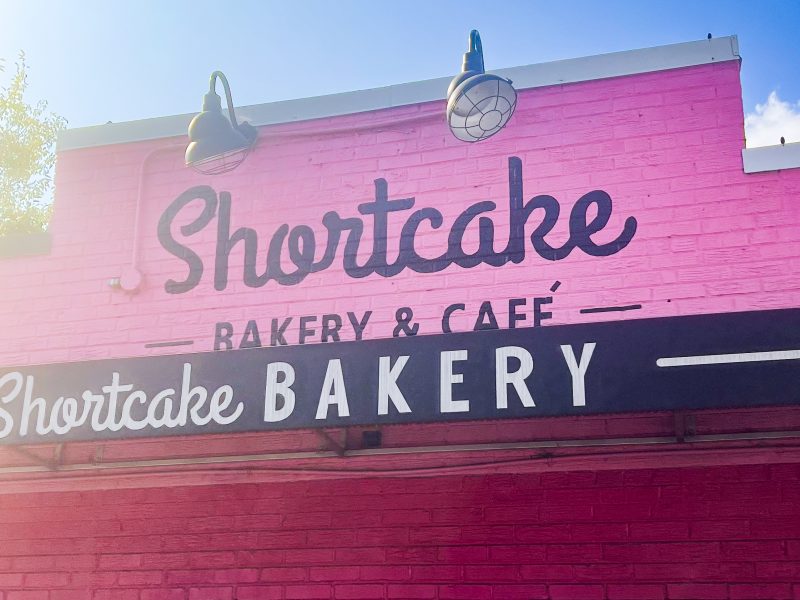Content warning: This article contains mention of sexual assault and violence.
The University of Maryland’s SEE hosted Tarana Burke, founder of the Me Too movement, for a question and answer session about her work and campus activism Monday night.
In a conversation moderated by junior Nabila Prasetiawan, Student Entertainment Event’s lectures director, Burke explained how she’s been a community worker her whole life. The work she does means a lot to her as a survivor herself, she said.
The name Me Too began when she started community work with young women in Selma, Alabama, in 2006, Burke said. Years later, her movement became #MeToo — a hashtag survivors of sexual assault used to take to social media to share their stories. In 2017, Burke was named Time Magazine’s Person of the Year alongside a group of other Me Too activists dubbed “The Silence Breakers.”
“I spent 15 years or so begging and pleading for people to listen to this topic,” she said. “Overnight, that flipped on its head.”
[Art Attack will return in April as a week-long festival]
Although the movement she created became a household name in the late 2010s, Burke says the nature of her work and its goals have not changed.
“Nobody thinks they’re going to be famous or even highly visible for their work, because that’s just not a part of it,” she said.
One of Burke’s biggest goals is to shift the language society uses to describe people who have been through sexual assault to “survivors” instead of “victims.”
“The framing of having fallen victim to something as opposed to having survived something is very different,” she explained.
To better help survivors and support them in everyday life, people have to understand their experiences, she said. That’s also become a large part of her goal as an activist.
When asked what resources she recommends, Burke suggested people watch Unbelievable, a Netflix original series released in 2019 that she called “one of the best depictions of survivors” she’s seen. The Me Too website’s resource library also has other materials curated by Burke.
Burke added that as part of the Me Too movement, she has created Act Too, a site that helps people get involved in efforts to end sexual assault and violence.
[UMD film festival showcases student, alumni creativity]
Following her discussion with Prasetiawan, Burke answered questions from the audience, submitted through a Q&A box on Zoom.
College campuses are the best places to test out reformative justice in ending sexual violence, Burke said, because they are miniature representations of our society.
Her movement has really taken off within college communities because the problem is so apparent there she said. It’s opened up many opportunities for conversation about reformative justice.
“The bottom line is,” she said, “you have power on your campus.”
Burke ended by answering a question about evolving as an activist when you learn new information. It’s OK to learn, she said. That’s how we advance as leaders.
“You can’t be a leader if you’re not learning,” she said.
The University of Maryland’s Office of Civil Rights and Sexual Misconduct can be reached at 301-405-1142 or titleixcoordinator@umd.edu. Students can also speak with CARE to Stop Violence, a free and confidential resource for survivors of sexual assault, relationship violence, stalking and sexual harassment. The program’s crisis line can be reached at 301-741-3442.



